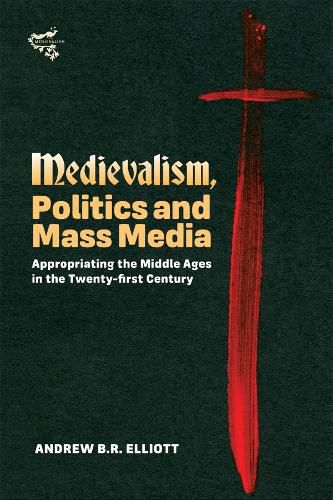Readings Newsletter
Become a Readings Member to make your shopping experience even easier.
Sign in or sign up for free!
You’re not far away from qualifying for FREE standard shipping within Australia
You’ve qualified for FREE standard shipping within Australia
The cart is loading…






In 2001, George Bush provoked global uproar by describing the nascent War on Terror as a Crusade . His comments, however, were welcomed by Al-Qaeda, who had long been describing Western powers in precisely the same terms, as modern Crusaders once again invading the Middle East. Ten years later in 2011, Anders Behring Breivik launched a tragic attack in Norway, killing 77 unarmed civilians, mostly teenagers. Breivik saw himself as a Templar Knight, a member of a group of knights allegedly resurrected in London in 2002 by one Lionheart . Later investigations suggested that the blogger, Lionheart, might have had links to the right-wing, anti-Muslim, English Defence League and otherso-called counterjihad blogging networks decrying an Islamic invasion of Europe.
Though extreme examples, these cases all share a crucial detail: the framing of current political issues in terms of recognisable medieval precedents. In the widespread use of medievalism across social- and mass-media channels, it is clear that such political medievalisms are not intended as a specific reference to a historical precedent, but as a use of the past for modern concerns. The argument of this book is that we need new ways of analysing this kind of medievalism; extending far beyond the concept of anachronism or inaccuracy, references to Crusades, Templars and Vikings affect the way weunderstand our world. Using theories of communication and media studies to examine popular medievalism, the author investigates what effect such medieval terminology can have on a mass-mediated audience and on the understanding of the Middle Ages in general.
ANDREW B.R. ELLIOTT is Senior Lecturer in Media and Cultural Studies, University of Lincoln.
$9.00 standard shipping within Australia
FREE standard shipping within Australia for orders over $100.00
Express & International shipping calculated at checkout
In 2001, George Bush provoked global uproar by describing the nascent War on Terror as a Crusade . His comments, however, were welcomed by Al-Qaeda, who had long been describing Western powers in precisely the same terms, as modern Crusaders once again invading the Middle East. Ten years later in 2011, Anders Behring Breivik launched a tragic attack in Norway, killing 77 unarmed civilians, mostly teenagers. Breivik saw himself as a Templar Knight, a member of a group of knights allegedly resurrected in London in 2002 by one Lionheart . Later investigations suggested that the blogger, Lionheart, might have had links to the right-wing, anti-Muslim, English Defence League and otherso-called counterjihad blogging networks decrying an Islamic invasion of Europe.
Though extreme examples, these cases all share a crucial detail: the framing of current political issues in terms of recognisable medieval precedents. In the widespread use of medievalism across social- and mass-media channels, it is clear that such political medievalisms are not intended as a specific reference to a historical precedent, but as a use of the past for modern concerns. The argument of this book is that we need new ways of analysing this kind of medievalism; extending far beyond the concept of anachronism or inaccuracy, references to Crusades, Templars and Vikings affect the way weunderstand our world. Using theories of communication and media studies to examine popular medievalism, the author investigates what effect such medieval terminology can have on a mass-mediated audience and on the understanding of the Middle Ages in general.
ANDREW B.R. ELLIOTT is Senior Lecturer in Media and Cultural Studies, University of Lincoln.